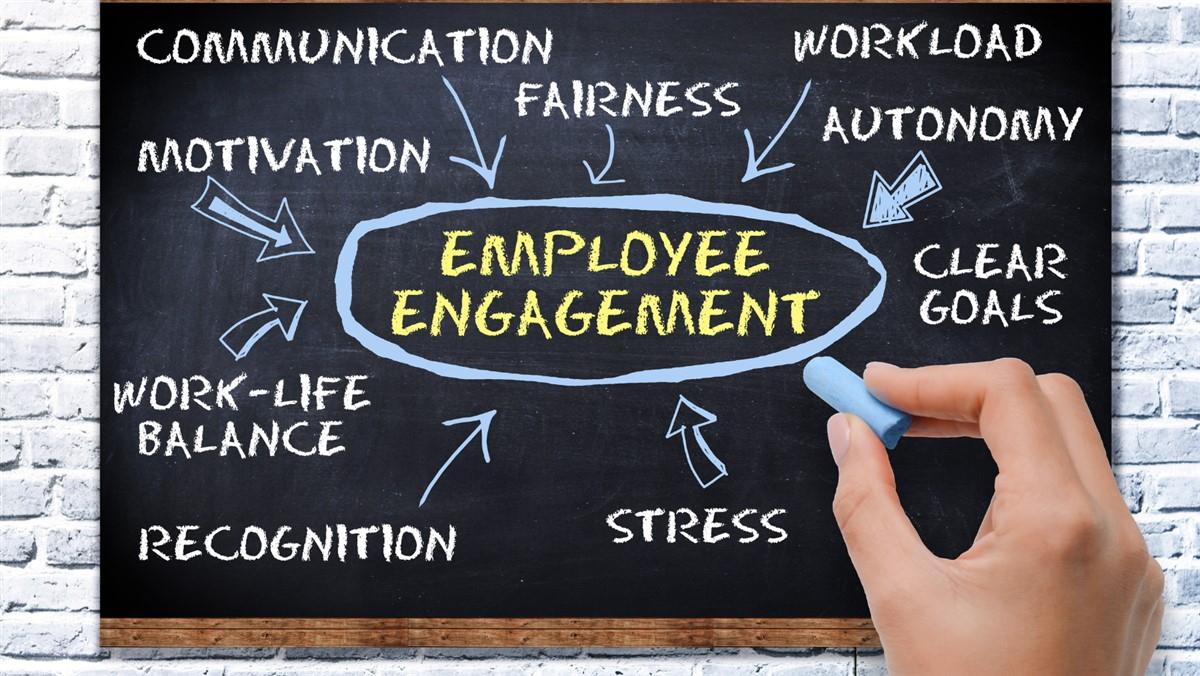What drives employee engagement?
Friday, October 13, 2023
 Employee engagement is the heartbeat of any thriving organization. It drives productivity. It fuels success. So, what's the secret behind it, and what fuels employee engagement?
Employee engagement is the heartbeat of any thriving organization. It drives productivity. It fuels success. So, what's the secret behind it, and what fuels employee engagement?
Inspiring Leadership:
“Good leaders build products. Great leaders build cultures. Good leaders deliver results. Great leaders develop people. Good leaders have vision. Great leaders have values. Good leaders are role models at work. Great leaders are role models in life." -Adam GrantGreat leaders are transparent, supportive, and lead by example. They inspire trust and provide a clear vision for the organization. They demonstrate integrity, communicate effectively, make tough decisions, and empower others. Exceptional leadership is the bedrock of employee engagement.
Effective Communication:
After over 20 years of experience working with organizations, poor communication continues to be a top gripe among contributors. Great leaders are active listeners. Feedback is multi-directional, and employees feel heard. Successful communication is strategic and a core company value. It builds trust, respect, and empathy. So put away the bullhorn and start listening.Recognition and Appreciation:
When employees are acknowledged and rewarded for their hard work, they feel valued and motivated. Recognition can take many forms, from verbal praise to tangible rewards like bonuses, promotions, or a heartfelt "thank you." When recognizing someone's work, be specific about how their behaviors and actions improve processes, the customer experience, and/or their team dynamics.Growth Opportunities:
Know your employees' personal and professional goals, and provide them with meaningful growth opportunities. Training, skills development, workshops and conferences, continued education possibilities, or cross-department training are all ways to develop your talent. When employees feel stagnant, they will look for other places to learn and grow. As Richard Branson says, "Train people well enough so they can leave. Treat them well enough so they don't want to."Work-Life Balance:
We've discussed this at length, yet some people are still not getting the memo. Maintaining a healthy work-life balance is essential. Successful organizations promote well-being and prevent burnout with programs that meet their employees' needs. This could include flexible work arrangements, wellness programs, and remote work options.Positive Work Environment:
A culture characterized by belongingness, community, inclusiveness, and trust boosts engagement. Take a DEI survey or Team Assessment Survey to identify strengths and opportunities for improvement. Combat the loneliness epidemic with healthy work environment that fosters a sense of community. People don't have to be best friends, but they should be able to arrive to a place where they have real connections with the people they work with every single day. Create a place where people feel safe and valued.Meaningful Work:
Employees are more engaged when they find meaning in their tasks. When their work aligns with their values and they see its impact, they are more passionate. Leaders can help by explaining how individual and team contributions make a broader difference. Something as simple as inviting a design team to see how a customer interacts with the final product can make those connections. There's a famous anecdote. President Kennedy was touring NASA and asked a janitor what he was doing. The janitor replied, "I'm helping put a man on the moon, Mr. President." Every single person in the organization needs to know the organization's goals, mission, and vision, and how their work aligns with them.Autonomy and Empowerment:
Step back and let people get to work. The Steve-Jobs-hover is a top engagement killer. Micromanaging is not only maddening but is a huge waste of time. Hire people to do their jobs and let them do them. When employees have some say in how they perform their work and are trusted to make decisions, they feel a stronger sense of ownership and responsibility.Fair Compensation and Benefits:
Bottom line, if you're not paying your employees fairly, they will leave, as they should. Fair compensation encompasses meaningful benefits (access to healthcare, paid vacation, sick days, pension plans etc.), fair workloads, and a livable wage that is competitive in the industry and area. Start with a salary audit of your industry and geography.Adapting to Change:
Healthy organizations are agile and resilient. If the pandemic taught us one thing, it's the only sure thing is change. How employees perceive and adapt to change can significantly impact engagement. Transparent communication about changes, involving employees in decision-making when possible, and offering support during transitions are essential for maintaining engagement levels.Work with CustomInsight
Exceptional leadership, effective communication, recognition, growth opportunities, work-life balance, a positive work environment, meaningful work, autonomy, fair compensation, and adaptability to change all play pivotal roles in driving employee engagement.
There is no magic wand to achieve all of these things. You can begin, however, with an employee survey. This will give your HR and senior leaders a unique opportunity to engage with your contributors, understand their concerns and perceptions, identify high-performing teams as well as areas of opportunity.
Take actions that impact your organization's culture in a positive way.
RECENT BLOG POSTS
Tuesday, February 3, 2026
Tuesday, January 20, 2026
Tuesday, January 6, 2026
Tuesday, December 16, 2025
Tuesday, December 2, 2025
Tuesday, November 18, 2025
Tuesday, November 4, 2025
Tuesday, October 21, 2025
